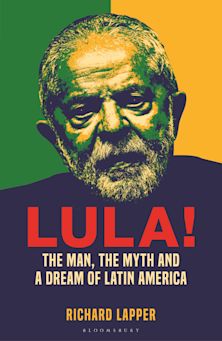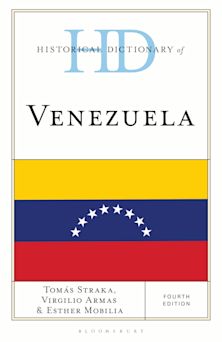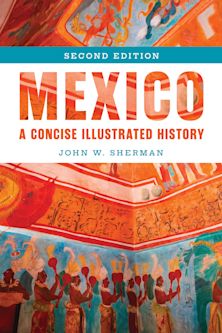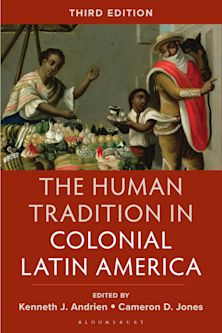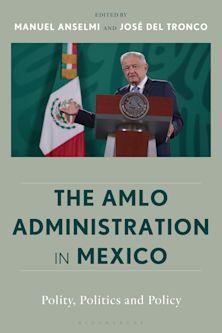- Home
- ACADEMIC
- History
- Latin American History
- Transforming Brazil
For information on how we process your data, read our Privacy Policy
Thank you. We will email you when this book is available to order
You must sign in to add this item to your wishlist. Please sign in or create an account
Description
Transforming Brazil explores the complex web of policies, ideas, institutions, social forces, and political actors behind recent Brazilian reforms. By placing them in a broader analytical framework, it sets the backdrop for a better understanding of the character, timing, and sequencing of the reform process. The focus is on the complex reform efforts during the post-1985 democratization era. The introductory chapters place Brazilian reform in comparative perspective and explore theories and accounts of the political, social and institutional context in which the reforms took place, the political process leading up to reforms, and the actors that influenced them, including elites, business, government, institutions and interest groups. The analysis of stabilization and economic liberalization weaves in accounts of policies and of Fernando Henrique Cardoso's election as president in 1994 and his re-election in 1998. The detailed study of privatization, deregulation, trade liberalization and opening of the economy, state and administrative reform, agrarian reform, changes in social security system, fiscal reforms, and related reforms during the eight years of the Cardoso government show that they amount to a turning point in Brazilian politics, even if several reforms remain incomplete. The analysis also points to factors shaping the reform process and the relationship between the reforms and vulnerability to external financial crises and shocks.
Transforming Brazil explores the rise and flux of a restructured industrial economy, with expanding service and agricultural sectors. It traces social and economic indicators from the 70's to present, highlighting spatial and social differences. The chapter on social policy and collective action traces the history of the labor and landless movements. More broadly, it sheds light on how civil society and collective action influence agrarian reform and other reform process. The analysis also clarifies the nature of elite and popular support for the refo
Table of Contents
Chapter 2 From Stabilization to Economic Liberalization
Chapter 3 State in Transition
Chapter 4 Social Development and Collective Action
Chapter 5 Elites and Reform
Chapter 6 Toward a New Development Strategy
Chapter 7 Democracy, Realignment, and Reform
Chapter 8 Appendix A Stabilization Plans after 1985
9 Appendix B Fiscal Adjustment Packages
10 Appendix C Planning and Social Development
11 Appendix D Statistical Trends
12 Appendix E Regional Differences
Product details
| Published | 19 Mar 2003 |
|---|---|
| Format | Ebook (Epub & Mobi) |
| Edition | 1st |
| Extent | 288 |
| ISBN | 9781461705703 |
| Imprint | Rowman & Littlefield Publishers |
| Publisher | Bloomsbury Publishing |
About the contributors
Reviews
-
A perceptive analysis of what was required to alter the Brazilian economy in the 1990s, tracing the move away from developmentalism to deregulation. By clearly demonstrating potential conflicts between democracy and the emerging political party system, Font allows readers to understand what has made the process of achieving a free economy in a free political arena so difficult. This is an informed, sophisticated, yet highly readable account greatly enhanced by appendixes containing capsule histories of all stabilization plans after 1985. Summing Up: Highly recommended. All Brazilianists (including undergraduates) and Latin Americanists in general.
Choice Reviews
-
Font's main contribution in this book is that it summarizes Brazilian development during the Cardoso government in a single volume. Development scholars and Latin Americanists as well as sociologists should find it of special interest. The book is also accessible to undergraduates, who are likely to better understand the challenges and experiences of development and democratization by examining the Brazilian exapmle.
American Journal of Sociology
-
In this useful preliminary evaluation of Fernando Henrique Cardoso's eight years in office, Font argues that the reformist Brazilian president understood both the importance of executive leadership and the need to construct a broad political coalition to promote change.
Foreign Affairs












